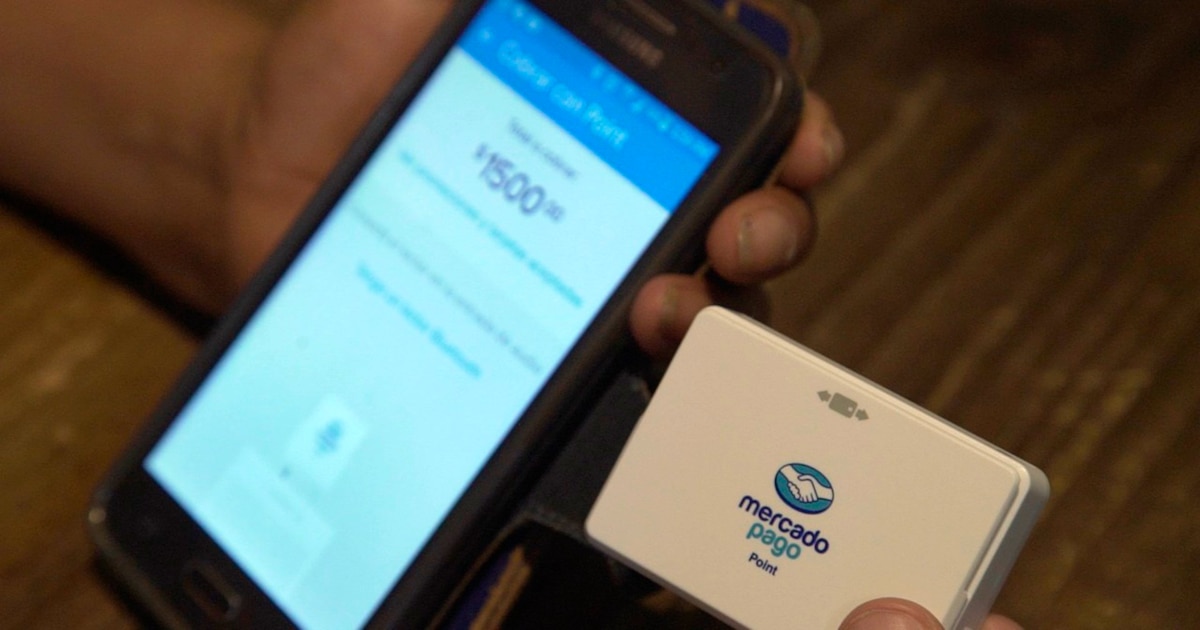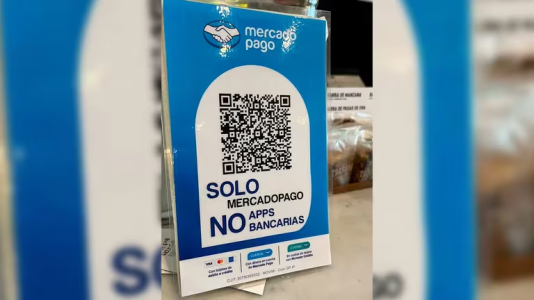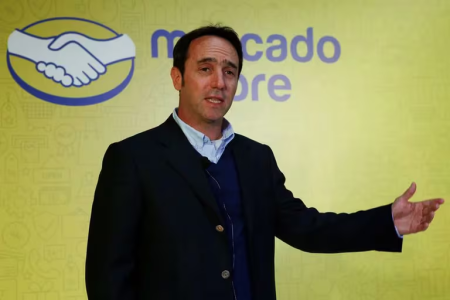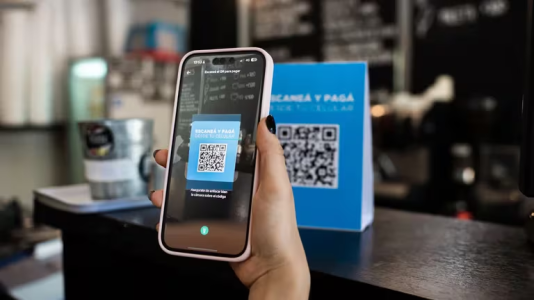All the Answers
Well-known member
The banks reported Mercado Libre to the Government for anti-competitive practices - Infobae

Source:

Los bancos denunciaron a Mercado Libre ante el Gobierno por prácticas anticompetitivas
Lo hicieron por medio de la billetera virtual Modo, que pertenece a las entidades más grandes, y realizó una presentación ante la Comisión Nacional de Defensa de la Competencia
May 06, 2024
They did it through the Modo virtual wallet, which belongs to the largest entities, and made a presentation before the National Commission for the Defense of Competition
By Fernando Meaños

Purchases through Mercado Libre represent 80% of retail e-commerce in Argentina
The Modo digital wallet reported Mercado Libre to the National Commission for the Defense of Competition (CNDC) for exclusive anti-competitive behavior. The presentation alleges an abuse of its dominant position “to the detriment of multiple market actors, including competitors, businesses and consumers.”
“The abusive conduct of Mercado Libre, detailed in the complaint, generates negative effects for the market, disproportionately maximizing its profits at the expense of contracting the value offer for users due to the lack of competition,” explained Santiago Eraso Lomáquiz, legal director. compliance and public affairs of Modo, in dialogue with Infobae .
Modo belongs to the main public and private banks, such as Macro, Santander, BBVA, Galicia, ICBC, Nación and Ciudad, among others (the only large one that is not part of it is Banco Provincia).
The trigger for the conflict happens because today, when a business has a QR provided by Mercado Pago, it only accepts card payments via QR if the plastic is loaded in a Mercado Pago wallet and rejects them if the customer has their card loaded in bank wallets. , as Mode. The BCRA rule ends this exclusivity for Mercado Pago and forces it to open its network to Modo and any other wallet. After several extensions, it was decided to come into effect on April 30. But in reality, that did not happen. However, the action initiated by the banks against Mercado Libre goes much further. And it opens doors for research that go beyond payment methods.
“Although we had the complaint prepared for quite some time, we decided to leave it for a reasonable period of time until the fifth expiration of the interoperability standard for cards arrived, to see if that point was actually opened. Since it was not opened, we decided to present it. But QR is one of the five points we found, it is a fifth of the complaint,” said Eraso Lomáquiz.
The lawyer did not rule out that Competition Defense may find other irregular situations and clarified that the complaint is not against the company's leadership position: “We do not denounce a dominant position. One can have a very successful, very large company. The problem is what is done with that position and whether the competition is excluded to the detriment of users, as is the case with Mercado Libre. “That is illegal.”
“Specifically, the title of what we are denouncing is the exclusive and anti-competitive abuse of Mercado Libre's dominant position. When I talk about Mercado Libre, I mean that the complaint is against Mercado Libre Inc., Mercado Libre SRL and Mercado Pago Payment Processing Service SRL. The three of them are there. They are the three companies against which the complaint is directed,” explained the Modo executive.
“A classic abusive and anti-competitive behavior is for the dominant player in the market to impose tied sales of its services on its users. This occurs, for example, when users of the Mercado Libre marketplace – both buyers and sellers – are inevitably forced to use only the Mercado Pago services, both the wallet and the account, to pay or collect – with the registrations commissions associated with it–, or use the collection processing services of the company itself or one of its vertically integrated subsidiaries, in effect 'tying' the Mercado Libre transaction to a Mercado Pago transaction," they explained from the wallet that groups to more than 35 public and private banks.

The founder and CEO of the Mercado Libre platform, Marcos Galperin. REUTERS/Ginnette Riquelme
From Modo they also highlighted that purchases made through Mercado Libre, a company led by Marcos Galperin , represent 80% of retail e-commerce in Argentina. Therefore, “this tied selling allows anticompetitive leverage on multiple network effects, severely restricting the freedom of choice of businesses and consumers. At the same time, such behaviors make it extremely difficult for other wallets and payment acceptance services to enter that can compete and offer better and/or cheaper services,” they stated.
“Additionally, it is not possible to ignore the fact that the dominant player in the market prevents with commercial requirements the application of the BCRA rule that imposes the interoperability of credit card payments in QRs . That is anti-competitive behavior in itself. A serious one. Even more so considering that this fact limits the freedom of users to use the wallet of their choice and pay with their cards in any QR, as happens when the physical card is used to pay at POS terminals,” Modo noted.
In this regard, the deadline for Mercado Pago QR readers to begin accepting card payments from all wallets ended without both parties reaching an economic agreement for commissions.
In this context, the Central Bank required Mercado Pago to deliver security credentials to Modo , the technical step necessary to advance the process. In this way, Mercado Pago avoided non-compliance with the regulations of the monetary authority.

MODO requested a precautionary measure so that Mercado Libre makes its QRs interoperable (MODO)
A few days ago, in the midst of the conflict with prepaid companies, the Minister of Economy Luis Caputo said that the Government does not control prices, but rather behaviors. In that case, they wanted to make it clear that there was no intention to set rates but rather to detect possible cartelization. In this case, the Central Bank ignored setting a commission for each of the parties through regulation, as occurred in the case of QR payments via transfer. The BCRA let the parties reach an agreement that never occurred and the conflict escalated until reaching this complaint. It remains to be seen what attitude the Competition Defense area will take with the ongoing precedent of prepaid payments, particularly in a Government that anticipates that it will not set prices.
The content of the complaint
In the document presented to the CNDC, Modo denounced:- Refusal to incorporate competing digital wallets : Mercado Libre prevents the use of digital wallets competing with Mercado Pago in its marketplace , denying access to those who request to be payment initiators on the platform.
- Refusal to incorporate competing aggregators : Mercado Libre does not allow other aggregators and acceptors competing with Mercado Pago to provide collection services in its marketplace , tying merchant sales to their own payment services.
- Obligation to open an exclusive account in Mercado Pago : Mercado Libre obliges buyers and sellers of the marketplace to have an account in Mercado Pago.
- Refusal to the interoperability of the QR and payment gateway : Mercado Libre prevents Mercado Pago's competing wallets from paying with their QR or payment gateway (e-commerce).
- Denial of Mercado Pago digital wallet interoperability : The company prevents Mercado Pago users from initiating card payments using competing acquirers and aggregators.
“The reported irregularities could perfectly have been claimed by any other actor in the ecosystem, and we understand that there are possibly several others that could arise from investigations by the CNDC or from complaints from other actors in the rest of the market in general (that is, not limited to the payments ecosystem). In our case, we decided to take a step forward not only because we are affected as competitors, but because we understand that it is not appropriate to endorse by omission those behaviors that violate the Law and limit the freedom of choice of users,” stated Eraso Lomáquiz.
“On our path, like any company, we encounter multiple technical, commercial and regulatory challenges. However, we were always surprised to see how Mercado Libre has generated very obvious artificial barriers that only multiply, becoming increasingly larger and deeper to the detriment of the entire payments ecosystem,” he added.
In this framework, Modo requested that the CNDC issue a precautionary measure and force Mercado Libre to:
- Grant immediate access to your marketplace to Mercado Pago's competing digital wallets, in particular, that positively respond to the request made by Modo to operate as a payment button within the Mercado Libre marketplace.
- Grant immediate access to your marketplace to competing acquirers, aggregators and acceptors of Mercado Pago.
- Cease tied sales between the Mercado Libre marketplace and the Mercado Pago digital wallet, allowing merchants/sellers in the Mercado Libre marketplace to receive their sales charges directly into the bank or payment account of their choice.
- Immediately cease the interoperability denial and make your QRs interoperable for both PCT and card payments, without discriminating or degrading service for other wallets.
- Make your digital wallet interoperable so that Mercado Pago users can initiate card payments in payment methods offered by competing acquirers and/or aggregators of Mercado Pago.


